Basically I am using an API to retrieve stock data to me in the form of a ytd so it will return data of the closing price of the stock everyday from january until now. At first I was simply using a for loop and reading until i < json.size() but after figuring out the .size() does not properly return what i need for it to work i am again stuck on this. My code is below
//Retrieves json format of data
Json::Value chartData = IEX::stocks::chartYtd(symbol_std);
//Stores x and y values
QVector<double> time(365), closePrice(365);
//Intialize first vector to first values
closePrice[0] = chartData[0]["close"].asDouble();
time[0] = startYearTime;
//Finds max and min for range
float maxAvg = closePrice[0];
float minAvg = closePrice[0];
//Reads in data from json(historical data 1 day delayed)
for(int i = 1; ; i++)
{
time[i] = startYearTime + 86400*i;
closePrice[i] = (chartData[i]["close"].asDouble());
if((closePrice[i] == 0) && (time[i] != chartData.size() - 1))
{
closePrice[i] = closePrice[i-1];
}
if(closePrice[i] > maxAvg)
{
maxAvg = closePrice[i];
}
else if(closePrice[i] < minAvg)
{
minAvg = closePrice[i];
}
}
The json file looks like this

what can i do to have my code store the "close" value in the json file until there is no more "close" value to read in and then in which it stops, thank you in advance as im a new developer!